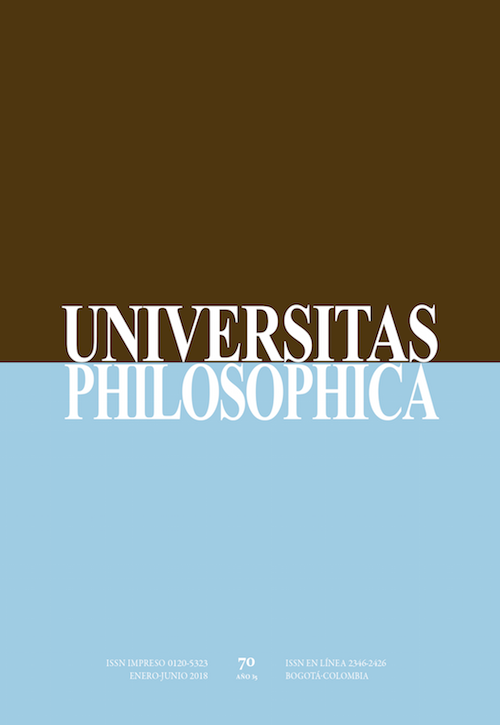Abstract
Faced with the failure of humanism and its task of man-taming, Sloterdijk thinks about the circumstances of our world from the standpoint of anthropotechnics, that is, a perspective that emphasizes man’s technical development, unveiling the implications for the human condition of contemporary technological society, saturated with information but unconcerned with the kind of reflective thought that characterized the philosophy of the past. Rethinking man from a biocultural and process-driven approach involves the rejection, once again and with renewed depth, of the humanist essentialism that pervaded philosophy before Heidegger.
This journal is registered under a Creative Commons Attribution 4.0 International Public License. Thus, this work may be reproduced, distributed, and publicly shared in digital format, as long as the names of the authors and Pontificia Universidad Javeriana are acknowledged. Others are allowed to quote, adapt, transform, auto-archive, republish, and create based on this material, for any purpose (even commercial ones), provided the authorship is duly acknowledged, a link to the original work is provided, and it is specified if changes have been made. Pontificia Universidad Javeriana does not hold the rights of published works and the authors are solely responsible for the contents of their works; they keep the moral, intellectual, privacy, and publicity rights.
Approving the intervention of the work (review, copy-editing, translation, layout) and the following outreach, are granted through an use license and not through an assignment of rights. This means the journal and Pontificia Universidad Javeriana cannot be held responsible for any ethical malpractice by the authors. As a consequence of the protection granted by the use license, the journal is not required to publish recantations or modify information already published, unless the errata stems from the editorial management process. Publishing contents in this journal does not generate royalties for contributors.


